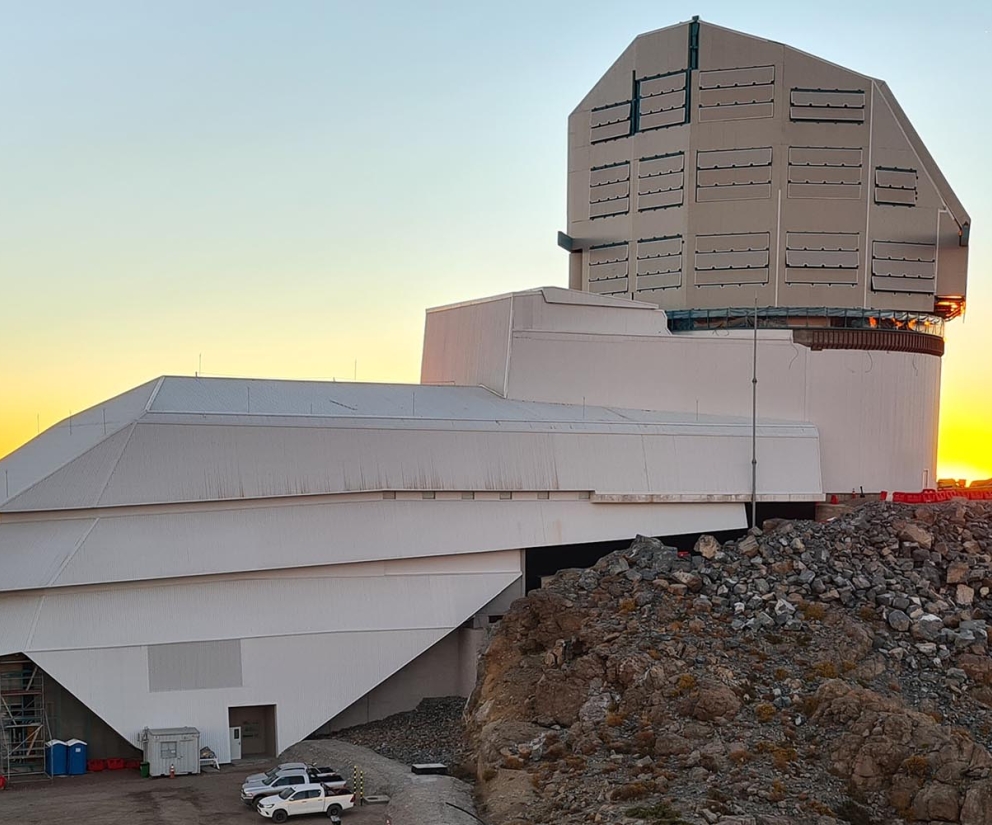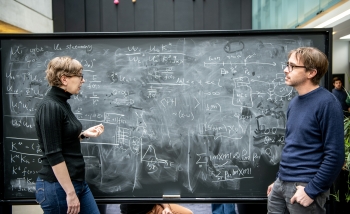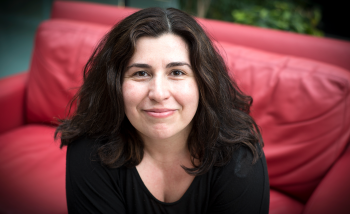Faculty member Jaume Gomis wins Early Researcher award
Perimeter Institute Faculty member Jaume Gomis has won an Early Researcher Award from the Ministry of Research and Innovation (MRI) of Ontario. Early Researcher Awards help promising, recently-appointed Ontario researchers build their research teams of graduate students, postdoctoral fellows, research assistants and associates. The goal of the program is to improve Ontario’s ability to attract and retain the best and brightest research talent. The $150,000 award will be used to support Dr. Gomis's research on "New Phases of Matter and String Theory."
Institute Director Dr. Neil Turok commented, “We are extremely pleased with this recognition and support of Jaume Gomis's research by the Ministry of Research and Innovation. His work developing new techniques for describing quantum phenomena in nuclear and particle physics is of fundamental interest and importance to theoretical physics, and may ultimately allow us to describe precisely how quarks are confined within protons and neutrons, as well as to predict entirely new states of matter.”
Dr. Gomis received his PhD from Rutgers University in 1999, then worked at the California Institute of Technology as a Postdoctoral Scholar and as the Sherman Fairchild Senior Research Fellow. In 2004, Dr. Gomis was awarded a European Young Investigator Award by the European Science Foundation, which he declined in order to join Perimeter Institute that same year. Dr. Gomis’s main areas of expertise are string theory and quantum field theory.
Over the last century, scientists have come to realize that gauge theories such as quantum chromodynamics (which encodes the force binding the constituents in atomic nuclei) describe all of the fundamental forces in nature and states of matter. One of the goals of theoretical physicists is to characterize the possible states of matter that could have been formed in the big bang, as well as the new states of matter that can be created in the lab and particle accelerators. Dr. Gomis and his team are developing new theoretical tools to study observables in gauge theories with the aim of identifying novel phases of matter. This work is contributing important theoretical tools, including some from string theory, aimed at predicting previously unknown states of matter, which can ultimately be investigated experimentally.
Building upon work of Nobel Prize winner and Perimeter Institute Scientific Advisory Committee member Dr. Gerard ‘t Hooft, Dr. Gomis and his collaborators have recently provided a theoretical framework for studying magnetic observables in gauge theories [1] [2]. The study of these observables, which can distinguish various phases of matter, has yielded as a bonus an explicit demonstration of S-duality, also known as electric-magnetic duality. S-duality is a conjectured equivalence between two superficially different theories, and is a mathematical structure which is at the heart of string theory and certain gauge theories. This duality predicts an intriguing relation between conventional electric observables and magnetic observables in a class of gauge theories. The tools developed by Dr. Gomis [1] [2] have resulted in an explicit demonstration of this basic prediction of S-duality.
Historically, theoretical investigations of novel observables in quantum field theories has motivated the experimental search for new states of matter, such as the theoretical prediction of the quark-gluon plasma phase of quantum chromodynamics, which has recently been experimentally observed at the Relativistic Heavy Ion Collider at Brookhaven. It is the aim of Dr. Gomis's research efforts to develop new theoretical tools to predict new phases of matter.
[1] Jaume Gomis, Takuya Okuda, Diego Trancanelli, “Quantum ‘t Hooft Operators and S-Duality in N=4 super Yang-Mills”, http://arxiv.org/abs/0904.4486 [2] Jaume Gomis, Takuya Okuda, “S-Duality, ‘t Hooft Operators and the Operator Product Expansion”, http://arxiv.org/abs/0906.3011
About PI
Perimeter Institute is the world’s largest research hub devoted to theoretical physics. The independent Institute was founded in 1999 to foster breakthroughs in the fundamental understanding of our universe, from the smallest particles to the entire cosmos. Research at Perimeter is motivated by the understanding that fundamental science advances human knowledge and catalyzes innovation, and that today’s theoretical physics is tomorrow’s technology. Located in the Region of Waterloo, the not-for-profit Institute is a unique public-private endeavour, including the Governments of Ontario and Canada, that enables cutting-edge research, trains the next generation of scientific pioneers, and shares the power of physics through award-winning educational outreach and public engagement.




